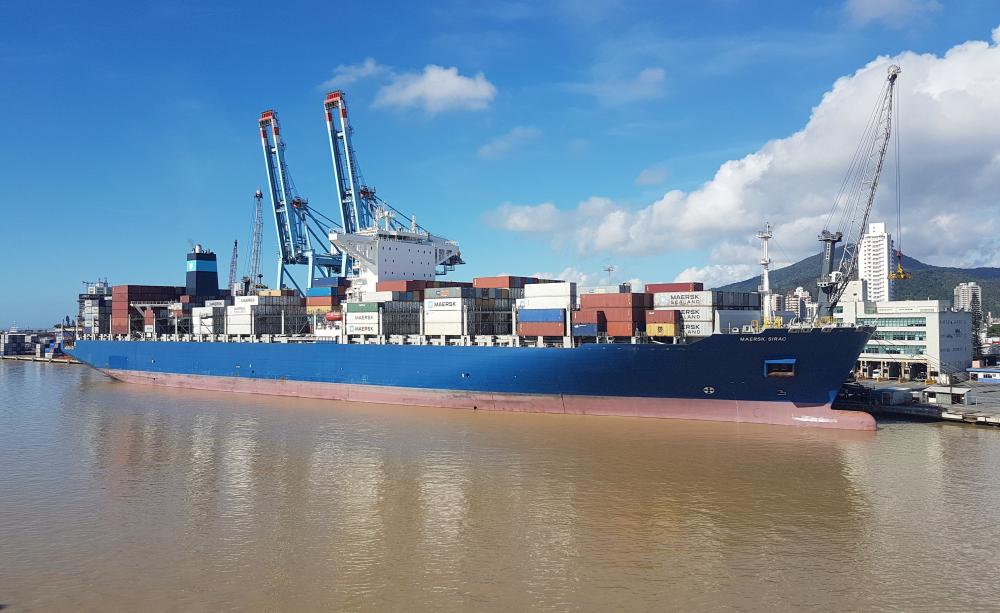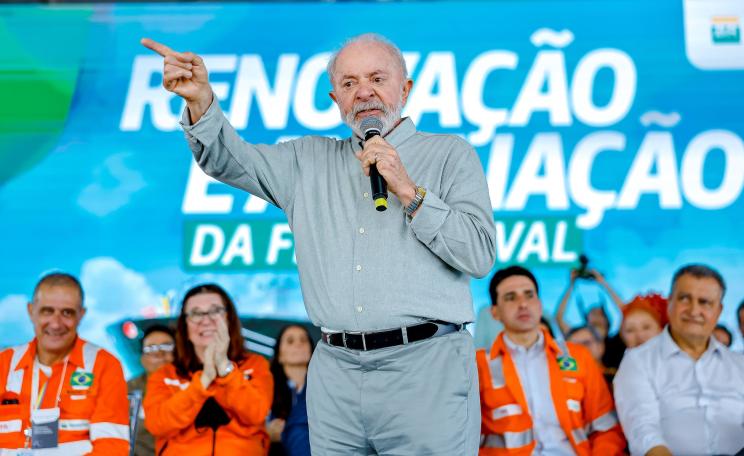Major shipping companies are the silent enablers in the billion-dollar global trade of deforestation-risk commodities like beef and leather.
Major shipping companies transported more than half a million tonnes of beef and leather from abattoirs linked to tropical forest destruction in Brazil in a two year period: equal to half the UK’s annual beef consumption.
New data from consultancy AidEnvironment analysed by The Bureau of Investigative Journalism shows that 12 meat plants run by Brazil’s biggest three beef companies – JBS, Marfrig and Minerva – were linked to at least 4,600 sq km of forest loss from August 2021 to July 2023, an area three times the size of London.
At almost 190,000 tonnes, MSC carried the largest volume of beef and leather from the 12 abattoirs, according to shipping records. It was followed by Maersk (over 119,000 tonnes), Hamburg-Sud (which was acquired by Maesk in 2017), and Hapag-Lloyd (87,000). CMA CGM shipped the fifth largest amount in the period with 46,000 tonnes.
Deforestation
The analysis from TBIJ is the first of its kind to show the volume of deforestation-risk cattle commodities moved by shipping companies to major markets, including China, the United States and the European Union (EU).
It follows an EU decision to delay legislation that requires companies to ensure specific products they import - such as beef, soy, rubber, palm oil - are free from deforestation. The EU confirmed that shippers would not be directly affected by this new law because they are not buying the products.
However, Marie Toussaint MEP, who worked on the EU legislation, told TBIJ that shippers “will play a crucial role in implementing due diligence”. She said TBIJ’s investigation underlined the “urgency of taking action” to halt deforestation.
Alex Wijeratna, senior director at campaign group Mighty Earth, said: “Major shipping companies are the silent enablers in the billion-dollar global trade of deforestation-risk commodities like beef and leather…. But they slip under the radar when it comes to legal accountability.”
Exposure
Holly Gibbs, director of the Global Land Use and Environment Lab at the University of Wisconsin-Madison, said: “Shipping firms must step up to make their own commitments to sustainable supply chains and transporting goods free of illegal deforestation.”
Nicole Polsterer from the campaign group Fern, said: “It’s not just those who wield the chainsaws who should be held responsible for destroying forests...every link in supply chains which profit from tainted goods should be legally accountable for them.”
Responding to TBIJ’s findings, CMA-CGM said it is committed to limiting the impact of its activities on biodiversity and was developing new procedures and would inform its customers to ensure compliance with upcoming regulations.
It added: “The CMA CGM Group is closely following developments related to upcoming European regulations regarding the import on the EU market and the export from the EU of certain products associated with deforestation.”
Major shipping companies are the silent enablers in the billion-dollar global trade of deforestation-risk commodities like beef and leather.
JBS, Marfrig and Minerva told TBIJ they have robust policies in place to ensure they don’t source from farms that deforest, and questioned the methodology used to calculate their exposure to deforestation risk. Maersk, Hapag-Lloyd and MSC declined to comment.
Transport
In order to calculate the deforestation footprint of the abattoirs producing the beef and leather carried by the shipping firms, researchers at the consultancy AidEnvironment used satellite imagery, livestock movement records and other data to calculate forest loss on thousands of ranches near the 12 slaughterhouses run by Brazil’s “big three” meatpackers.
To find the farms that most likely supplied each slaughterhouse, the researchers looked at deforestation of properties with pasture in the abattoirs’ 'buying zones”'
These areas are determined by transport connections and other factors, and, where possible, confirmed by interviews with plant representatives. The TBIJ research focused on slaughterhouses in the states of Mato Grosso, Pará and Rondônia – important frontiers of deforestation associated with ranching.
The research used 2022 and 2023 data from satellite monitoring programme Prodes, run by the Brazilian National Institute for Space Research (INPE), which releases annual deforestation figures that cover the period August to July. So the 2022 data refers to August 2021-July 2022, and the 2023 data covers August 2022-July 2023.
This Author
Grace Murray is an environmental journalist with The Bureau of Investigative Journalism. Andrew Wasley is the chief environment correspondent at TBIJ. TBIJ is an independent, not-for-profit news organisation based in the UK. For more than five years TBIJ has been investigating the role of the global beef trade in driving deforestation in Brazil, as part of its award-winning food and agriculture coverage.




